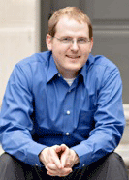
Prof. Yongku Cho’s research ambition is to engineer light-activated proteins as a tool to manipulate brain circuit activity. He is currently equipping his laboratory here at UConn to build on his work recently published in Nature Methods. The research article—coauthored by Dr. Cho, his postdoctoral advisor Ed Boyden, and other colleagues—documents the group’s progress in controlling neural activity using novel light-activated ion channels.
Traditionally, optical techniques have been used to observe what is happening in biological systems. However, researchers have recently begun using light to actively control biological processes through proteins that trigger a specific function when illuminated.
“We use light-activated ion channels naturally found in green algae, which are single-celled microorganisms, to control the electrical activity of mammalian neurons,” says Prof. Cho.
 In 2003, researchers realized that green algae respond to high intensities of light using ion channels that sense blue light. The light-activated channels allow ions to flow through the cell membrane, resulting in the initiation of electrical signals called action potentials in neurons. This finding signifies that light energy can be used to trigger electric signals in specific populations of neurons.
In 2003, researchers realized that green algae respond to high intensities of light using ion channels that sense blue light. The light-activated channels allow ions to flow through the cell membrane, resulting in the initiation of electrical signals called action potentials in neurons. This finding signifies that light energy can be used to trigger electric signals in specific populations of neurons.
“Until now, we were able to activate one type of neuron at a time using blue light,” Prof. Cho says, “but in the brain there are many different types of neurons, forming multiple connections. So the task was to find a way to activate multiple types of neurons independently.” By collaborating with a consortium that sequenced the RNA of over a thousand species of plants (including green algae), more than one hundred new light-activated ion channels were discovered. From these novel ion channels, the group made a breakthrough discovery of a unique ion channel that senses red light, and another that is ultra-sensitive to blue light. Using these two new ion channels, it is now possible to activate two different types of neurons independently using blue and red light.
Prof. Cho intends to extend this approach to control other types of processes in neurons. “In plants, light-activated proteins are used for controlling a wide array of functions, such as opening a flower in response to sunlight,” he says. “I believe that we can use this approach of controlling individual components in the brain to gain insight on the root cause of brain disorders, such as epilepsy and Alzheimer’s disease.” Prof. Cho’s group will continue engineering novel proteins to further understand the brain and perhaps identify the causes of its disorders.
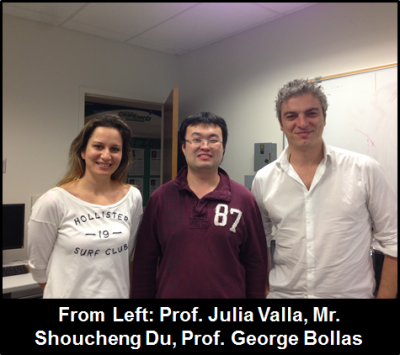 Mr. Shoucheng Du, Prof. Julia Valla, and Prof. George Bollas are making exciting progress in developing the process of biomass catalytic pyrolysis. Their recent achievements are published in Green Chemistry (
Mr. Shoucheng Du, Prof. Julia Valla, and Prof. George Bollas are making exciting progress in developing the process of biomass catalytic pyrolysis. Their recent achievements are published in Green Chemistry (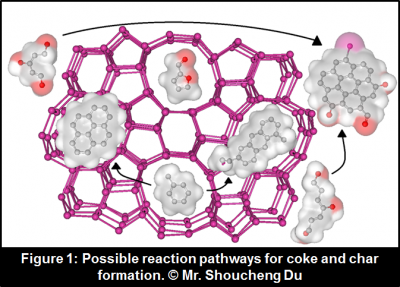
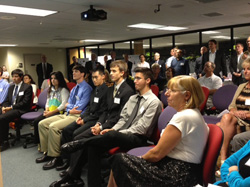 The Research Experience for Undergraduates (REU) program provides undergraduates with exposure to a stimulating research environment.
The Research Experience for Undergraduates (REU) program provides undergraduates with exposure to a stimulating research environment.


 Dr. Nieh was recently awarded a National Science Foundation grant in 2012 to design such nano-carriers. “Lipid-based nanodiscs and vesicles have the potential to serve as delivery carriers for therapeutics or diagnostic agents, so the stability of the structure is an important issue,” he said.
Dr. Nieh was recently awarded a National Science Foundation grant in 2012 to design such nano-carriers. “Lipid-based nanodiscs and vesicles have the potential to serve as delivery carriers for therapeutics or diagnostic agents, so the stability of the structure is an important issue,” he said.
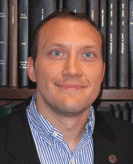 Dr.
Dr. 

